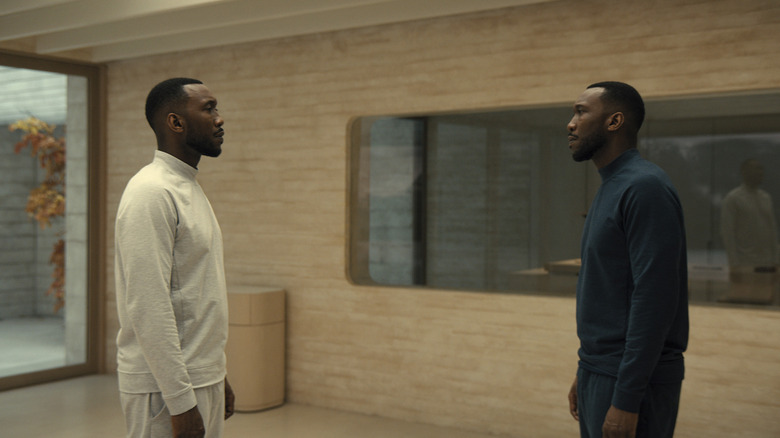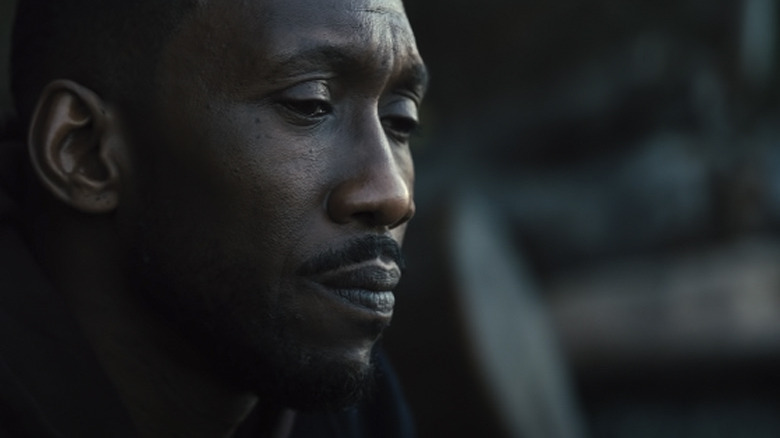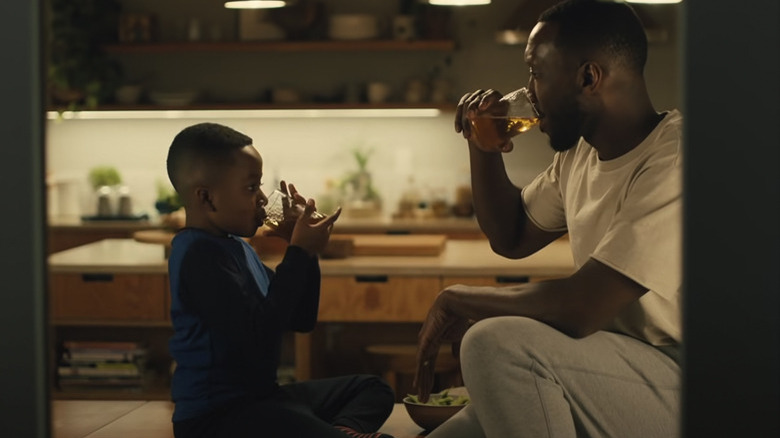Swan Song Writer/Director Benjamin Cleary Talks About Crafting The Movie's Emotional Ending [Interview]
If you want to watch a science-fiction movie about clones, you don't have to look too hard to find one. Humanity versus technology is one of the genre's most frequently recurring ideas, and it's often wrapped up in the trappings of a thriller. Maybe the protagonist finds himself replaced by an imposter, and he's forced to go on the run to get his life back. Maybe a whole population of clones plots to fight against the restraints of their designed purpose.
But what happens when a filmmaker avoids the thriller element and instead gives the protagonist an emotional, heart-wrenching decision to make: Will our hero allow himself to be seamlessly replaced in his own life by a clone in order to protect his family from the devastation of losing him to a terminal illness? That's the dilemma at the center of Benjamin Cleary's film, "Swan Song," a poignant new drama starring Mahershala Ali and Naomie Harris that's now streaming on AppleTV+. It's one of my favorite movies of the year, and during a recent interview with Cleary, the director spoke about creating the film's stirring, beautifully executed ending. Fair warning: Spoilers ahead.
A Shared Drink, and a Final Gift
As "Swan Song" nears its end, ailing protagonist Cameron Turner (Mahershala Ali) decides he's going to go through with the switch in order to save his wife and children from the trauma of losing him. This new arrangement will be seamless for them, but Cameron will live out the rest of his short life at a remote facility, far away from the warmth of his loved ones. But before Cameron leaves them behind for good, he breaks into his own home – then occupied by his replica, Jack — and has one final interaction with his young son, Cory (Dax Rey). Cameron pours them a couple glasses of apple juice and says they're going to pretend they're drinking beer, allowing Cameron the touching, devastating experience of sharing one last drink with his child. He's also able to say goodbye to his wife, Poppy (Naomie Harris), and finally achieve a sense of peace about their relationship after some rough patches. The sequence is devastating — almost as devastating as what happens in the film's final moments.
Cameron and Jack have not always seen eye to eye, but in the movie's closing seconds, Jack gives Cameron a beautiful gift. As Cameron stands in the facility, a video is displayed on the wall in front of him. It's from Jack's POV, and Jack asks Poppy to stare into his eyes and tell him she loves him. Of course, when she does, it's as if Poppy is speaking to Cameron through Jack. As tears drift down Cameron's face, he smiles — and the film cuts to black.
During a recent interview with Cleary, I asked him about his approach to crafting these scenes.
"It's all about the performances."
I was just emotionally wrecked by the end of this movie, especially the scene where Cameron and his son are drinking at the table, and then that final scene with Cameron watching Jack's video. Those seem like the two emotional gut punch moments of the film. I'm wondering if you can tell me about conceiving those scenes and then making sure that they delivered the maximum impact for audiences.
Well, what you do with scenes like that is you hope to create an environment on set where it's a place of trust and of comfort for your actors to do their best work. When it comes to a scene like the goodbye with Cory, with his son, from a technical point of view, the last thing you want to do is be trying to do big camera moves or anything like that. So you think about that first and foremost. It should be shot simply and just get out of the way so that the actors can do their work. And then really, you write the scene and you hope that you've put as much truth into it that you can so that your actors will connect with it.
Then really, it's all about the performances. I think Dax Rey, the wonderful Dax Rey who played Cameron's son in it, and Mahershala and how they navigated that scene was just phenomenal. I was just weeping. I was looking right at the whole room full of people weeping as we shot it. I still just lose myself, I lose it when I watched that scene now, even I've seen it a hundred times.
Likewise for the end: You've got a master like Mahershala Ali, you give him what he needs, which is space. For that end scene, we played the footage for him. I waited until we were actually rolling for him to see it for the first time, so he could have that first experience of it. And really then it's just down to watching a master actor be in that moment, be present. Yeah, I love that those scenes affected you and the feedback we're getting from people is really beautiful, because I think what he did and the rest of our cast did is pretty stunning. So thank you.
"Swan Song" is streaming now on Apple TV+.


